
LATVIAN PARTNERS are coordinating institution. As for a long-established and experienced adult learning Centre (more than 19 000 adult students since 1996), it takes pleasure and pride from seeing students develop new skills, enhance their knowledge or study a subject for pure enjoyment and motivates for further development. Learning Centre “EVA-93” lines of action are adult formal, informal and non-formal learning. Latvian partner work with unemployed learners and economically and socially disadvantaged learners. Latvian partner do all to promote their specialist knowledge with the purpose to provide courses that partners and trainees find valuable for their further personal development.
Thus, after attending many workshops about ITC tools, that can be used in non-formal learning programmes, they started to implement new tools during organized training sessions and came to the conclusion that adult learners with a low level of education simply disclaim new tools as they are used to traditional training methods.
Therefore, as Latvian partners regularly assess the results of learners and analyze their needs by creating different surveys, they deduced that learners do not give clear answers if they have to characterize that denial to new learning approaches as isolated ” feedback givers “. Latvian partner came to the conclusion that, indeed, learners must overcome isolation in order to learn to express thoughts. Collaborative learning exercises like group presentations and discussion groups encourage active learning giving learners the opportunity to become more deeply engaged with their thoughts, and with one another. And after some research, they found materials about critique both as a learning activity and assessment that aligns with several significant learning goals such as critical thinking, verbal communication, and analytical or evaluation skills. As Latvian partner understands that level of media literacy correlates with participation in lifelong learning they need to strengthen educators ‘acquirement towards new collaborative learning methods with the aim to promote learner’s personal development by changing attitude towards media literacy importance. Furthermore, Latvian partners have created method for “insufficient proficiency assessment of eligibility for the job” which helps both teaching staff and learners to identify weaknesses regarding their skills and competencies and goals to be achieved and part of this method will be used as an overall project evaluation tool and each mobility evaluation tool and also self-evaluation tool.
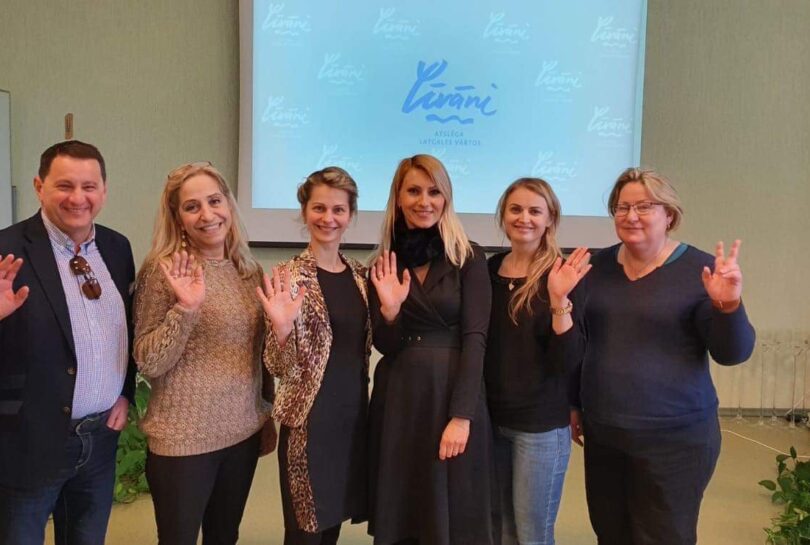
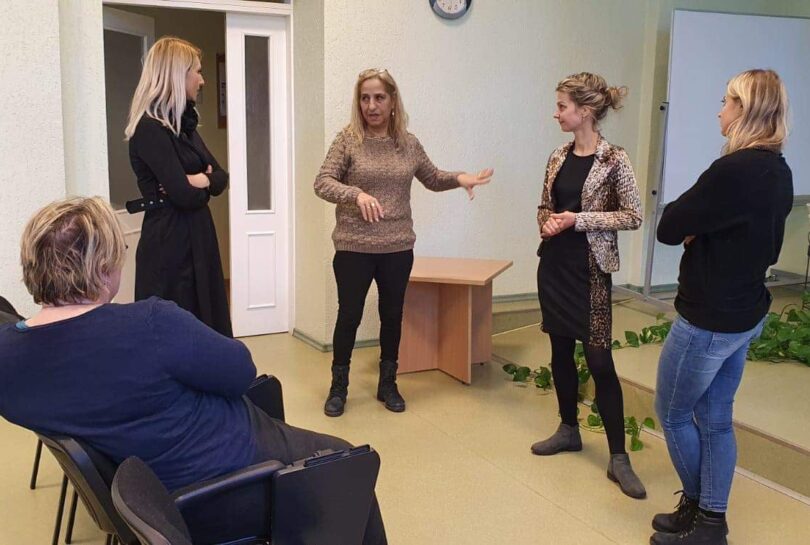
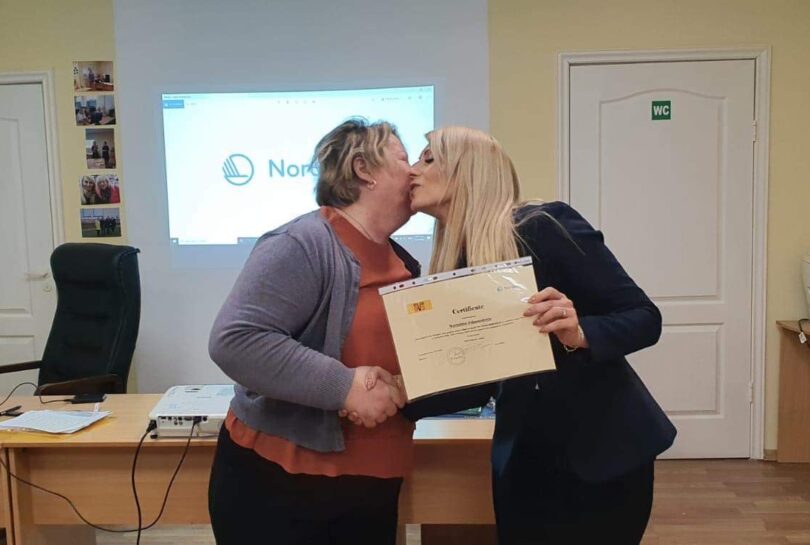
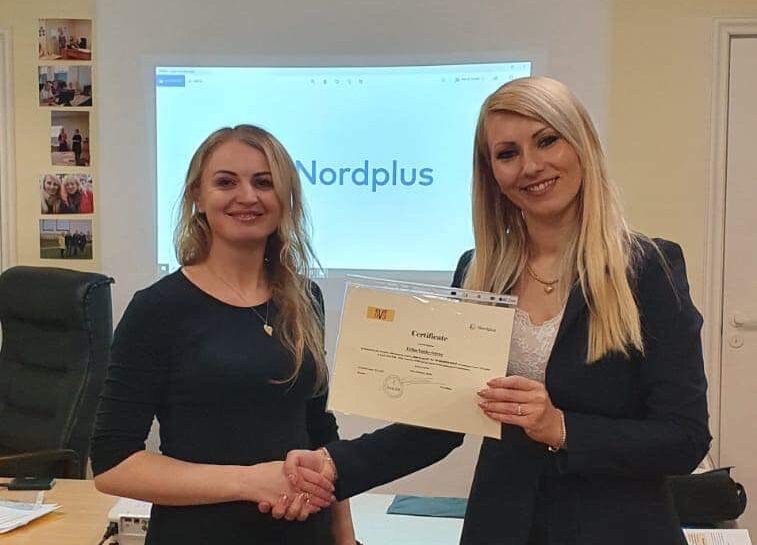
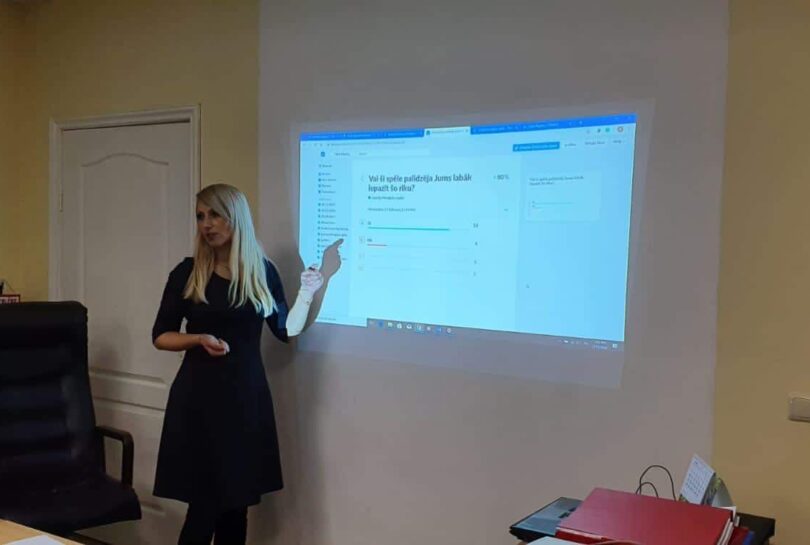
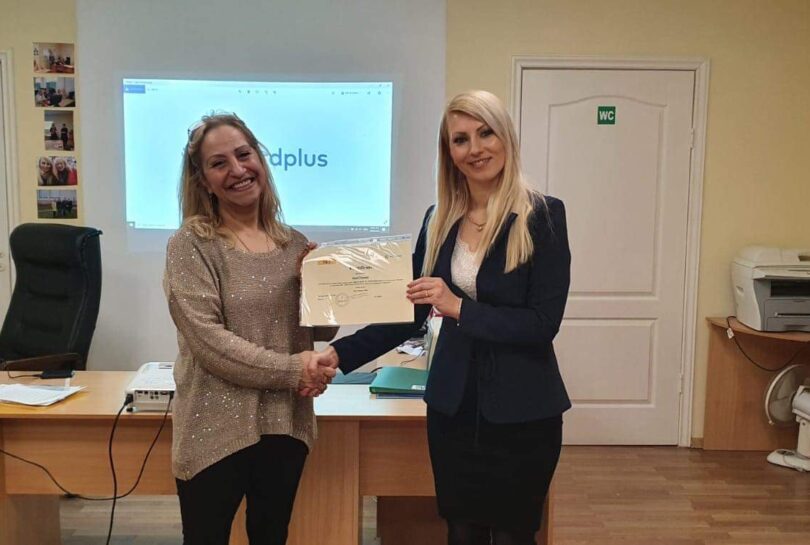
MOBILITY IN LIVANI, LATVIA
16th – 22th of February, 2020
As the level of media literacy correlates with participation in lifelong learning and we aim to motivate adult learners to take an active part in lifelong learning activities in the future, through various sessions during mobility, project participants were engaged in learning activities to reach this aim.
LC “EVA-93” as a hosting organization, presented their institution and reported activities held after mobility in Iceland and presented adult learners’ statistics in formal and informal learning programmes.
To provide an overview of adult learner portrait across the educational sector and business environment in Livani district and Latgale county, participants visited Livani Business Support Center and Livani district council of projects and education. To better understanding low skilled adults’ narratives – participants visited National Employment Agency and State Labour Inspectorate – Latgale regional office and got informed about the situation in the labour market- division by age, level of necessary education and skills, typical work injuries depending on the profession, qualification of the employed and length of service.
Also, during various training sessions, participants got to practice analyzing different professions – according to the requirements of the occupational classification – skills, abilities, educational possibilities and knowledge, and repeated knowledge tests. In addition, partners explored current issues on denying modern learning methods in small towns to frame the problem. Finally, participants worked together to define possible case scenarios that could be seen in their community, what they might have experienced.
Participants gained knowledge on developing a targeted messaging, setting up a targeted audience, and interacting with it. Critique as a collaborative learning method was shown in the context of educators as a target group. Practical use of critique was implemented by creating games about ICT tools using ICT tools in three languages to bring home. Participants worked together to practice and involve themselves in new behaviours and skills.
Participants were involved in team-building activity – escape room visiting that provided realistic experiences that empower individuals to contribute to common goals. And by that, participants learned how to interact with each other in a non-work-related way and observe the talents and interests of others to build trust and respect.
After training course evaluation, partners concentrated on future activities planning. They had cultural activities – a tour to The Latgale Art and Crafts Centre in Livani and a glass blowing and clay workshop.
Nordplus fullorðinsáætlunarverkefni „Þori að segja það!“
Nr. NPAD-2019/10147
HREYFI Í LIVANI, Lettlandi
- – 22. febrúar 2020
Þar sem fjölmiðlalæsi er í samræmi við þátttöku í símenntun og við stefnum að því að hvetja fullorðna nemendur til að taka virkan þátt í símenntunarstarfi í framtíðinni, með ýmsum fundum meðan á hreyfanleika stendur, þátttakendur verkefnisins stunduðu nám til að ná þessu markmiði.
LC „EVA-93“ sem hýsingarstofnun, kynnti stofnun sína og greindi frá starfsemi sem haldin var eftir hreyfigetu á Íslandi og kynnti tölfræði fullorðinna nemenda í formlegum og óformlegum námsáætlunum.
Til að veita yfirsýn yfir mynd af fullorðnum nemendum þvert á menntageirann og viðskiptaumhverfið í Livani -héraði og Latgale -sýslu heimsóttu þátttakendur Livani Business Support Center og Livani -héraðsráð verkefna og fræðslu. Til að skilja betur frásagnir lágmenntaðra fullorðinna- þátttakendur heimsóttu Atvinnumálastofnun og Vinnueftirlit ríkisins- svæðisskrifstofu Latgale og fengu upplýsingar um ástandið á vinnumarkaði- skiptingu eftir aldri, nauðsynlegri menntun og færni, dæmigerð vinnuskaði eftir því hvaða starfsgrein, hæfi starfsmanna og starfstími.
Einnig, á ýmsum æfingum, fengu þátttakendur að æfa sig í að greina mismunandi starfsgreinar – í samræmi við kröfur starfsflokkunar – færni, hæfileika, menntunarmöguleika og þekkingu og endurtekin þekkingarpróf. Að auki könnuðu samstarfsaðilar núverandi málefni um að afneita nútíma námsaðferðum í litlum bæjum til að ramma vandamálið. Að lokum unnu þátttakendur saman að því að skilgreina mögulegar atburðarásir sem hægt væri að sjá í samfélagi þeirra, hvað þeir gætu hafa upplifað.
Þátttakendur öðluðust þekkingu á því að þróa markviss skilaboð, setja upp markhóp og hafa samskipti við þau. Gagnrýni sem samvinnukennd námsaðferð var sýnd í samhengi við kennara sem markhóp. Hagnýt gagnrýni var útfærð með því að búa til leiki um upplýsingatækni með því að nota upplýsingatækni á þremur tungumálum til að koma heim. Þátttakendur unnu saman að því að æfa og taka þátt í nýrri hegðun og færni.
Þátttakendur tóku þátt í teymisuppbyggingu-flóttaheimsókn sem veitti raunhæfa reynslu sem gerir einstaklingum kleift að leggja sitt af mörkum til sameiginlegra markmiða. Og með því lærðu þátttakendur hvernig á að hafa samskipti sín á milli á óvinnutengdan hátt og fylgjast með hæfileikum og hagsmunum annarra til að byggja upp traust og virðingu.
Eftir mat á námskeiðinu einbeittu samstarfsaðilar sér að skipulagningu framtíðarstarfsemi. Þeir höfðu menningarstarfsemi – ferð til Latgale Art and Crafts Center í Livani og glerblástur og leirverkstæði.

